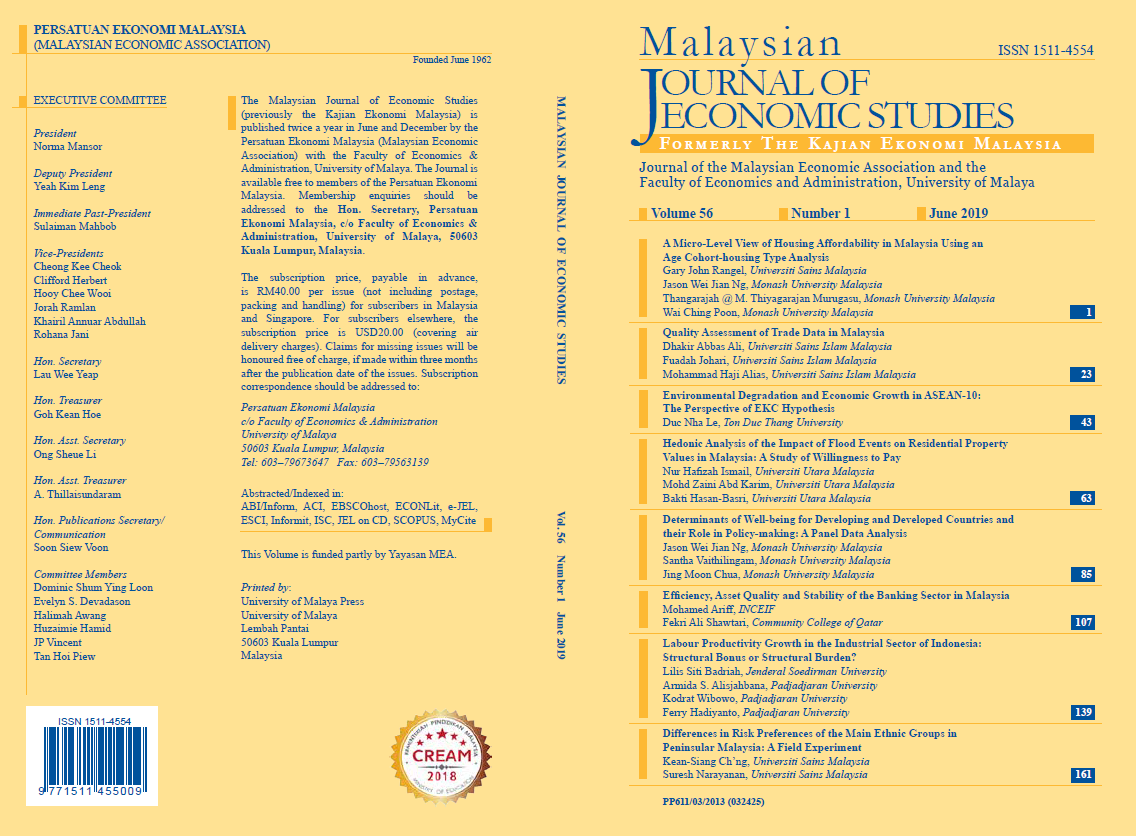Determinants of Well-being for Developing and Developed Countries and their Role in Policy-making: A Panel Data Analysis
DOI:
https://doi.org/10.22452/MJES.vol56no1.5Keywords:
GDP, panel data, subjective well-being, World Values SurveyAbstract
The gross domestic product has been the traditional indicator used to measure economic growth, with almost every country having national policies that are growth-centric in nature. Underlying this practice is the assumption that higher income levels precede higher levels of utility, or well-being. However, the Easterlin paradox discovered by Easterlin in the 1970s contradicts this economic assumption and has subsequently ignited interest in the study of subjective well-being and its determinants. Using the countries’ responses to the life satisfaction question in the World Values Survey as the measure of subjective well-being over a period of time, this study utilises panel data techniques to identify the key determinants of life satisfaction for developing and developed countries. The study also determines the relative importance of these key determinants for the two groups of countries. The findings of this study show that the determinants of life satisfaction differ across developed and developing countries, with religiosity being the only common determinant. The policy implications of these findings are discussed.

